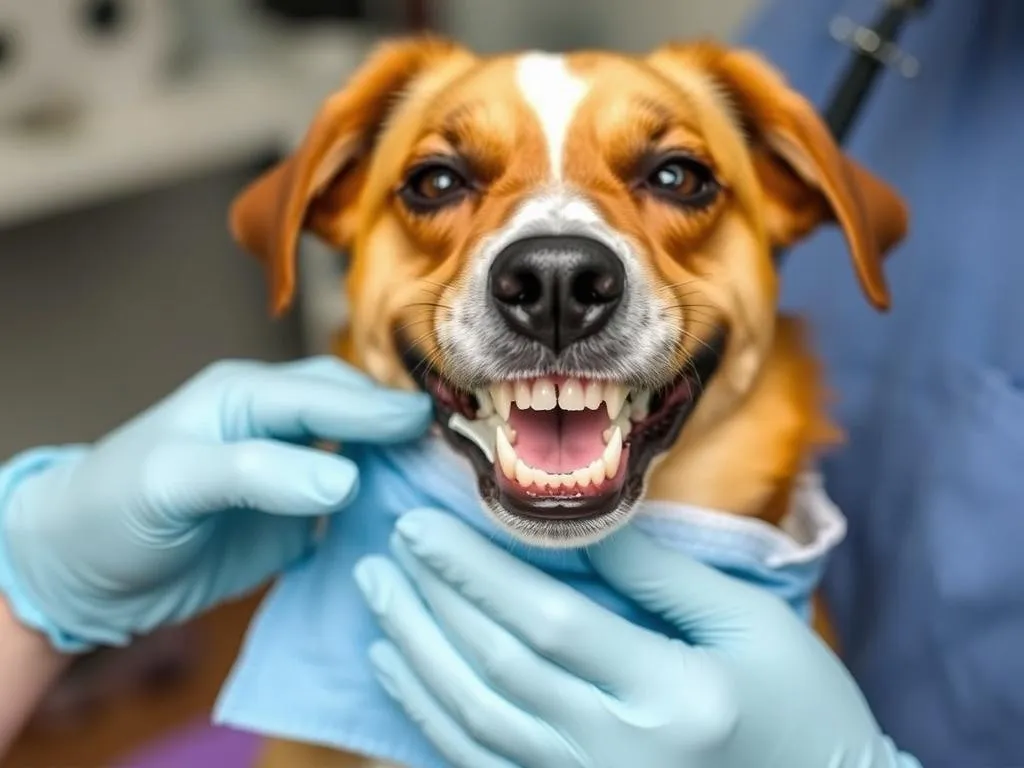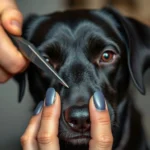
Introduction
Dog health care is an essential aspect of responsible pet ownership, encompassing various practices that ensure our furry friends lead healthy lives. Among these practices, dental hygiene plays a crucial role in maintaining a dog’s overall well-being. Just like humans, dogs can experience a range of dental issues that can lead to serious health complications if not addressed. This blog post will delve into the cost of dog teeth cleaning in Australia, providing insights into the importance of dental care, types of cleaning available, and factors influencing costs. Understanding these costs is vital for budgeting and managing your pet’s health effectively.
Importance of Dental Health in Dogs
Overview of Canine Dental Problems
Canine dental health is often overlooked, yet it is a significant aspect of their overall health. Common dental problems in dogs include periodontal disease, gingivitis, and tooth fractures. These issues can arise due to plaque and tartar buildup, which, if left untreated, can lead to serious infections and tooth loss.
Signs and Symptoms of Dental Problems
Pet owners should be vigilant for signs that their dog may be experiencing dental problems. Some common indicators include:
- Bad breath: A foul odor emanating from your dog’s mouth could signal underlying dental issues.
- Difficulty eating: If your dog is reluctant to chew or shows signs of pain while eating, it may have dental discomfort.
- Swollen gums: Inflammation or redness around the gums can indicate gingivitis or other oral diseases.
- Excessive drooling: This can be a sign of pain or discomfort in the mouth.
Benefits of Regular Teeth Cleaning
Regular teeth cleaning is vital for preventing dental disease. Not only does it help maintain healthy teeth and gums, but it also has broader implications for your dog’s health:
- Prevention of Dental Disease: Routine cleaning can prevent plaque buildup and subsequent dental issues.
- Impact on Overall Health: Bacteria from periodontal disease can enter the bloodstream, affecting the heart, kidneys, and liver.
- Improved Quality of Life: A healthy mouth contributes to a happier, more comfortable dog who can enjoy eating and playing without pain.
Types of Dog Teeth Cleaning
Professional Veterinary Teeth Cleaning
One of the most effective ways to ensure your dog’s dental health is through professional veterinary teeth cleaning. This procedure typically involves the following steps:
- Anesthesia Considerations: Most veterinary clinics will require your dog to be anesthetized during the cleaning to ensure they remain still and safe throughout the procedure. This is a standard practice as it allows for a thorough examination and cleaning.
- Procedure: The veterinarian will use specialized tools to remove plaque and tartar, polish the teeth, and evaluate the overall oral health of your dog.
- Frequency Recommendations: It is generally recommended that dogs undergo professional teeth cleaning at least once a year, though some may require more frequent visits depending on their dental health and breed.
At-Home Teeth Cleaning
In addition to professional cleaning, at-home dental care is essential for maintaining your dog’s dental health. Key practices include:
- Brushing: Regular brushing can significantly reduce plaque buildup. Use a toothbrush and toothpaste specifically designed for dogs.
- Dental Chews: These can help to remove plaque and freshen breath, complementing your brushing efforts.
- Importance of Regular At-Home Care: Incorporating at-home care alongside professional cleaning will yield the best results in maintaining your dog’s dental health.
Other Dental Services Offered
Veterinary clinics may also offer additional dental services, including:
- Dental X-rays: These help in diagnosing underlying issues not visible during a regular examination.
- Extractions and Treatments for Oral Diseases: If serious problems are found during a cleaning, extractions or other treatments may be necessary.
How Much Does Dog Teeth Cleaning Cost in Australia?
Average Cost Breakdown
When considering the cost of dog teeth cleaning in Australia, it’s essential to recognize that prices can vary widely based on several factors, including the region you live in. On average, you can expect to pay anywhere from $300 to $1,500 for professional cleaning, depending on:
- Urban vs. Rural: Veterinary clinics in urban areas tend to charge more due to higher operational costs compared to those in rural regions.
- Dog Size: Larger dogs may incur higher costs due to the extra time and resources needed for their cleaning.
- Health Condition: Dogs with existing health issues may require additional care, impacting the overall cost.
- Clinic Reputation: Well-established clinics with experienced veterinarians may charge more for their services.
Additional Costs to Consider
In addition to the basic cleaning fee, there are other costs that pet owners should factor into their budget:
- Pre-Anesthetic Blood Work: This may be necessary to ensure your dog is healthy enough for anesthesia, typically costing around $100 to $200.
- Post-Cleaning Care: Your dog may require medications for pain management or follow-up visits, which can add to the overall cost.
- Potential Additional Treatments: If dental issues are discovered during the cleaning, costs for extractions or specialized treatments may increase the total expenditure.
Insurance and Financing Options
Pet insurance can be an excellent way to offset some of the costs associated with dental care. Many insurance plans offer coverage for dental cleanings, but it’s essential to review the policy details. Additionally, some veterinary clinics may provide financing options, allowing you to spread out the cost of dental care over time.
How to Choose a Veterinary Clinic for Teeth Cleaning
What to Look For
Choosing the right veterinary clinic for your dog’s teeth cleaning is crucial. Here are some factors to consider:
- Credentials and Experience: Look for clinics with veterinarians who specialize in dental care and have a solid track record.
- Facility Standards: The clinic should maintain high cleanliness standards and have up-to-date equipment for dental procedures.
Questions to Ask the Veterinarian
Before scheduling an appointment, consider asking the following questions:
- What does the cleaning process involve? Understanding the steps and what to expect can help ease any concerns.
- What are the anesthesia protocols? Ensure the clinic follows strict guidelines for safe anesthesia administration.
- What follow-up care is offered? Knowing what to expect post-cleaning can help you prepare for your dog’s recovery.
- Can you provide a detailed cost estimate? Transparency about costs will help you budget effectively.
Tips for Maintaining Your Dog’s Dental Health at Home
Regular Brushing Techniques
Brushing your dog’s teeth is one of the most effective ways to maintain their dental health. Here are some recommended practices:
- Choose the Right Tools: Use a toothbrush designed for dogs and toothpaste that is safe for them to swallow.
- Step-by-Step Guide:
- Get your dog comfortable: Let them sniff the toothbrush and toothpaste before attempting to brush.
- Lift the lip: Gently lift your dog’s lip to expose the teeth and gums.
- Start brushing: Use gentle circular motions, focusing on the gum line where plaque accumulates.
- Praise your dog: Reward your dog during and after brushing to create a positive association.
Dental Chews and Toys
Incorporating dental chews and toys into your dog’s routine can greatly benefit their dental health. Some recommended products include:
- Dental Chews: Look for chews that are specifically designed to promote oral health, as they can reduce plaque and tartar build-up.
- Dental Toys: Toys with textures designed to clean teeth can help maintain your dog’s dental hygiene while they play.
Routine Check-ups and Monitoring
Regular veterinary visits are critical for monitoring your dog’s dental health. During these check-ups, your vet can perform oral examinations and recommend appropriate cleaning schedules.
Additionally, as a responsible pet owner, you should monitor your dog for any signs of dental issues at home. Early detection can prevent more severe problems down the line.
Conclusion
In summary, maintaining your dog’s dental health is crucial for their overall well-being. Regular teeth cleaning, both professionally and at home, is essential in preventing dental diseases and ensuring a long, healthy life for your furry companion. It’s important to budget for dental care as a part of your overall pet health management, as the costs can vary based on several factors. By prioritizing your dog’s dental hygiene, you contribute to their overall health, happiness, and longevity.
Understanding the cost of dog teeth cleaning in Australia is the first step in ensuring your pet receives the best possible care. Regular dental attention not only protects your dog’s teeth but also their heart, kidneys, and overall quality of life.









